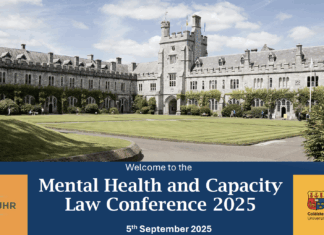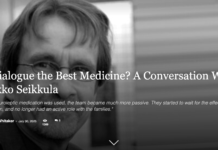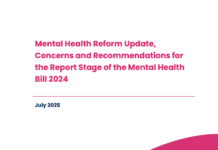FEATURED ARTICLES
Advance Healthcare Directives: essential tools for a humane person-centred system
A powerful lived-experience perspective published in the Irish Journal of Psychological Medicine sets out why everyone living with mental health difficulties should be allowed to have a legally binding advance healthcare directive.
Written by long-time campaigner...
What human rights really means in mental health law
Mad in Ireland editors Martha Griffin and Jennifer Hough spoke at the recent Centre for Criminal Justice and Human Rights mental health conference at University College Cork.
Their joint presentation was titled: Beyond the Current...
NEWS FEED
Advance Healthcare Directives: essential tools for a humane person-centred system
A powerful lived-experience perspective published in the Irish Journal of Psychological Medicine sets out why...
Nov 7th: A Disorder for Everyone! – The Online Festival 2025
Part of the Challenging the culture of diagnosis & disorder! collection
AD4E festival 2025: A whole...
What human rights really means in mental health law
Mad in Ireland editors Martha Griffin and Jennifer Hough spoke at the recent Centre for...
So what is Eco-Arts Practice and how does it relate to mental health?
Eco Arts as a Field of Healing
In this Fields of Healing podcast episode I speak...
Research: Fully recovered after psychosis, without antipsychotic drugs
A new study demonstrates that far more people are able to fully recover from psychosis than...
New Script for mental health
New Script activists have a favour to ask you
Can you help us get Ticking...
Is Dialogue the Best Medicine? A conversation with an Open Dialogue expert
Welcome to MIA Radio. Today, we are pleased to have as our guest Jaakko Seikkula....
Mental Health Reform: Criteria for involuntary treatment significantly expanded
Mental Health Reform is holding an event to discuss recent developments related to the Mental...
Mental health debate in Ireland is reinforcing old clichés to allow forced treatment
The current discussion on the reform of the Mental Health Act in Ireland is quite...
From Mad in America
RESEARCH
Led by researchers in Trinity College Dublin, the PROTECT Study, seeks to identify priorities for future research on reducing and stopping psychiatric medications. Read the top priorities for future research on reducing and stopping psychiatric medication here.





















